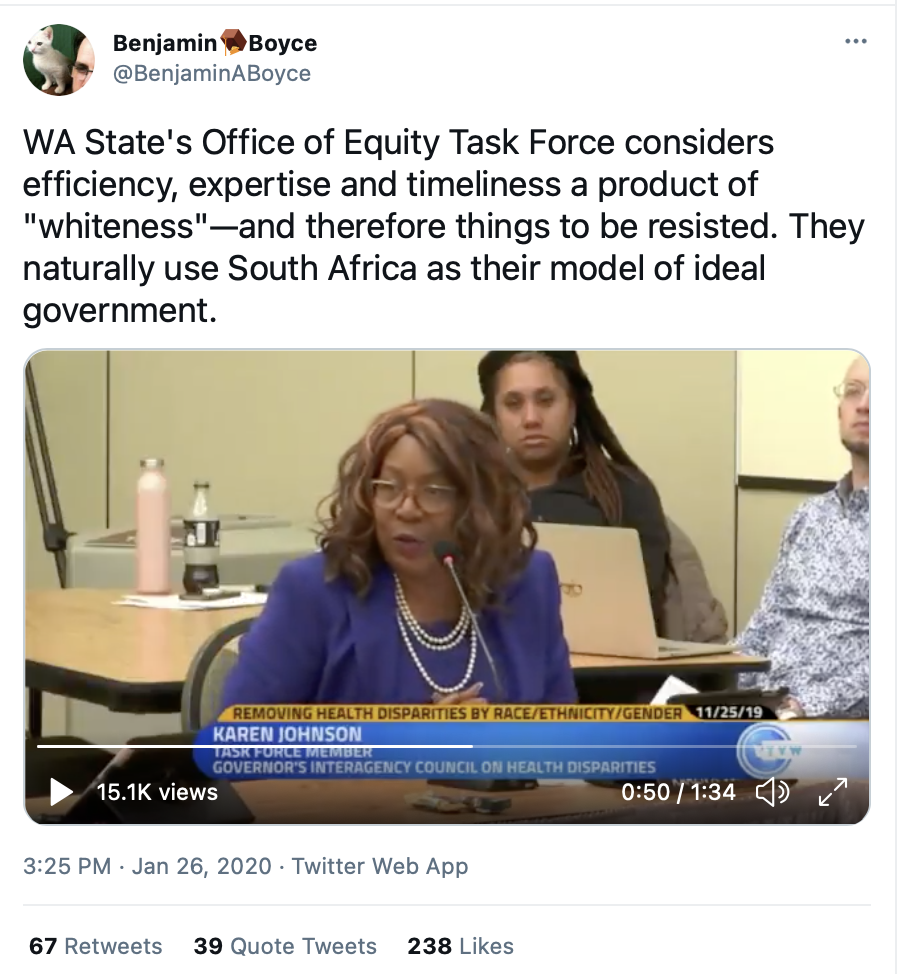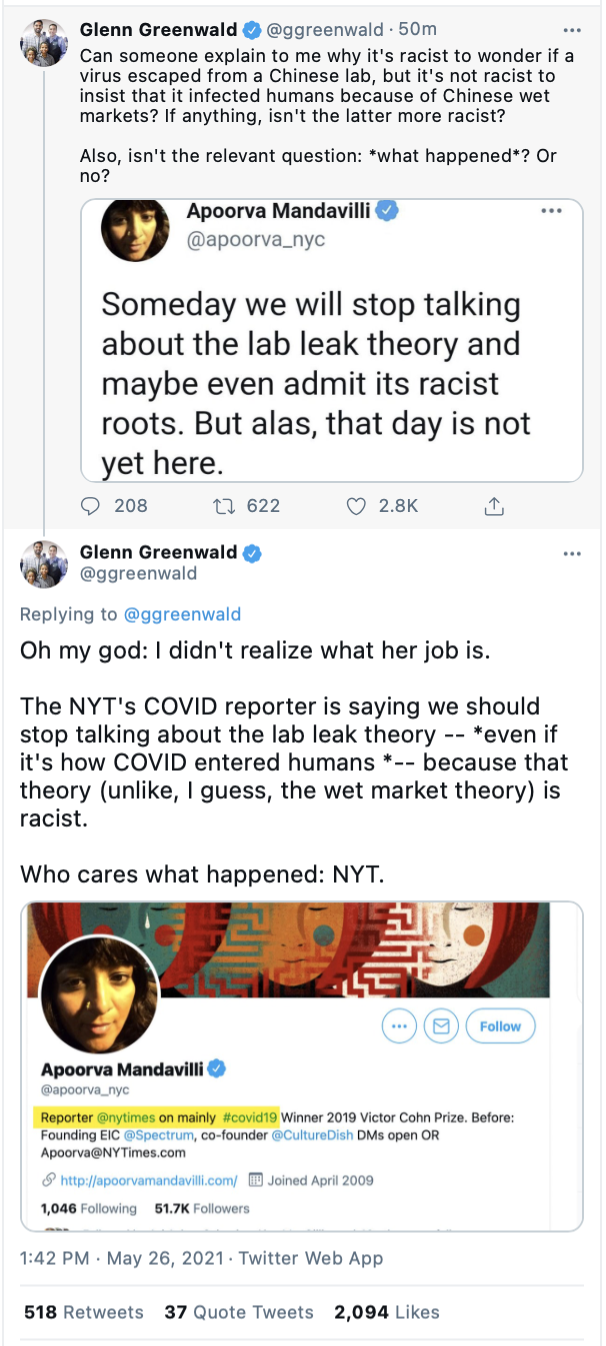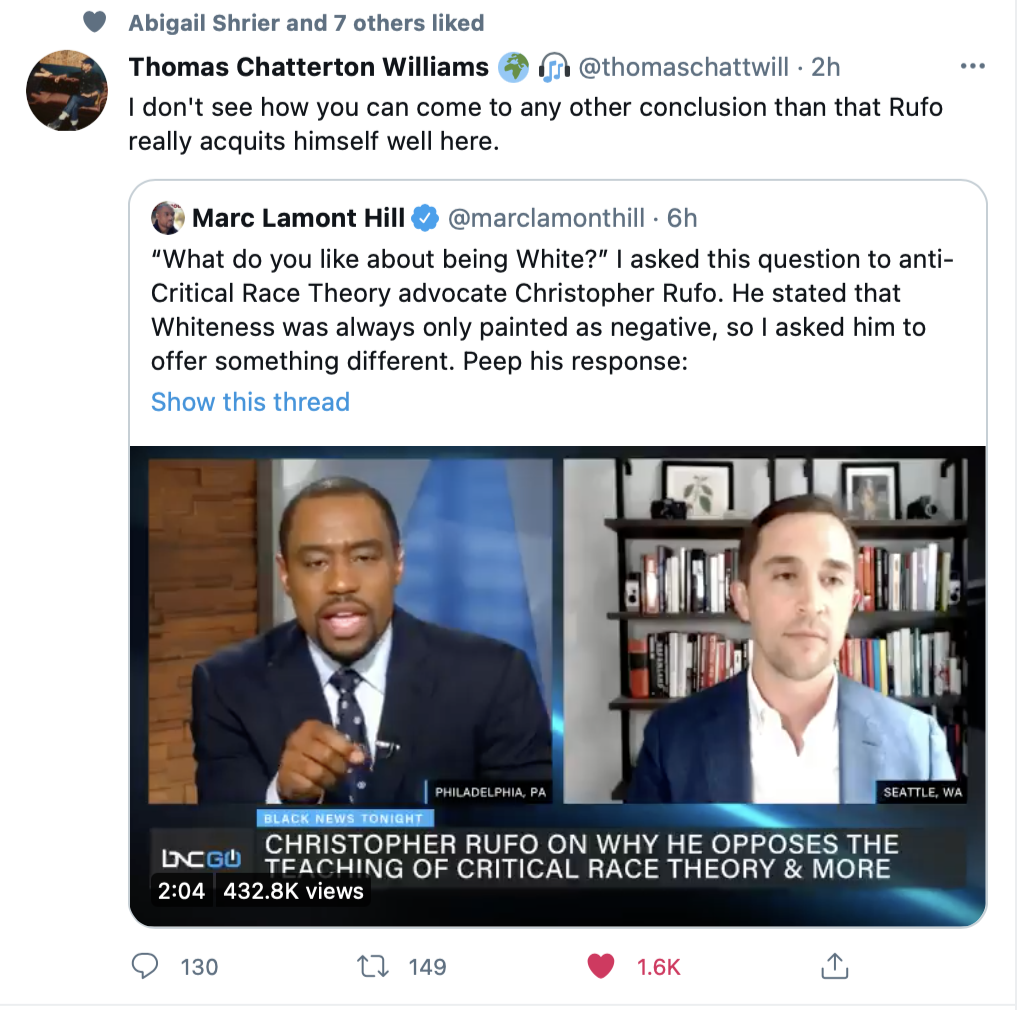The Woke Industrial Complex at Lockheed Martin
Christopher Rufo reports, complete with leaked training documents:
Last year, Lockheed Martin Corporation, the nation’s largest defense contractor, sent white male executives to a three-day diversity-training program aimed at deconstructing their “white male culture” and encouraging them to atone for their “white male privilege.” The program, hosted on Zoom for a cohort of 13 Lockheed employees, was led by the diversity-consulting firm White Men As Full Diversity Partners, which specializes in helping white males “awaken together.”
This "training" happened last year. It is the easiest thing in the world to predict that based on these revelations, future training will not have written materials (as a school administrator urged here).
Bonus Woke Tip: Being punctual is a "white" thing, so Lockheed should simply tell the customers, "We'll get you that order of fighter jets next year, maybe 3 or 4 year year from now, maybe ten years from now. Whatever." :




